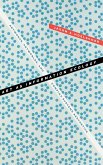From bottle gardens, the bachelor pad and Batman to designer gnomes and monogamy spray, this book uses a diverse range of objects to explore the changing significance of kitsch. With its unique approach to its subject, Kitsch! Cultural politics and taste promises to advance debates in cultural studies and sociology around taste, while providing an invaluable introduction for students and interested readers. Kitsch! examines how the idea of kitsch is mobilised - progressively, as bad taste, as camp and as cool - to inform notions of identity and sensibility. The figure of 'kitsch man' - a degenerate with politically dubious taste - looms large in the extant biography of kitsch and is here shown to be gendered, racialised and classed. Where most studies proceed from the kitsch object, this book takes the moment of aesthetic judgement as its starting point and attempts to identify the ideological work performed by the category itself, especially as kitsch enters a seemingly more casual phase of its lifecourse. The book poses the strongest challenge to those who argue that taste is democratised in contemporary culture, offering ample evidence that judgements of taste have shifted ground rather than relaxed. Above all, the story of kitsch proposed by the authors is intended to disturb kitsch's reputation as the source of a ready-made sensibility and politics. Kitsch has a history and not, as it has been supposed, an essence and is consequently the site of love, hate, joy, exasperation, irony, nausea and all of the twisted possibilities between.
Hinweis: Dieser Artikel kann nur an eine deutsche Lieferadresse ausgeliefert werden.
Hinweis: Dieser Artikel kann nur an eine deutsche Lieferadresse ausgeliefert werden.








